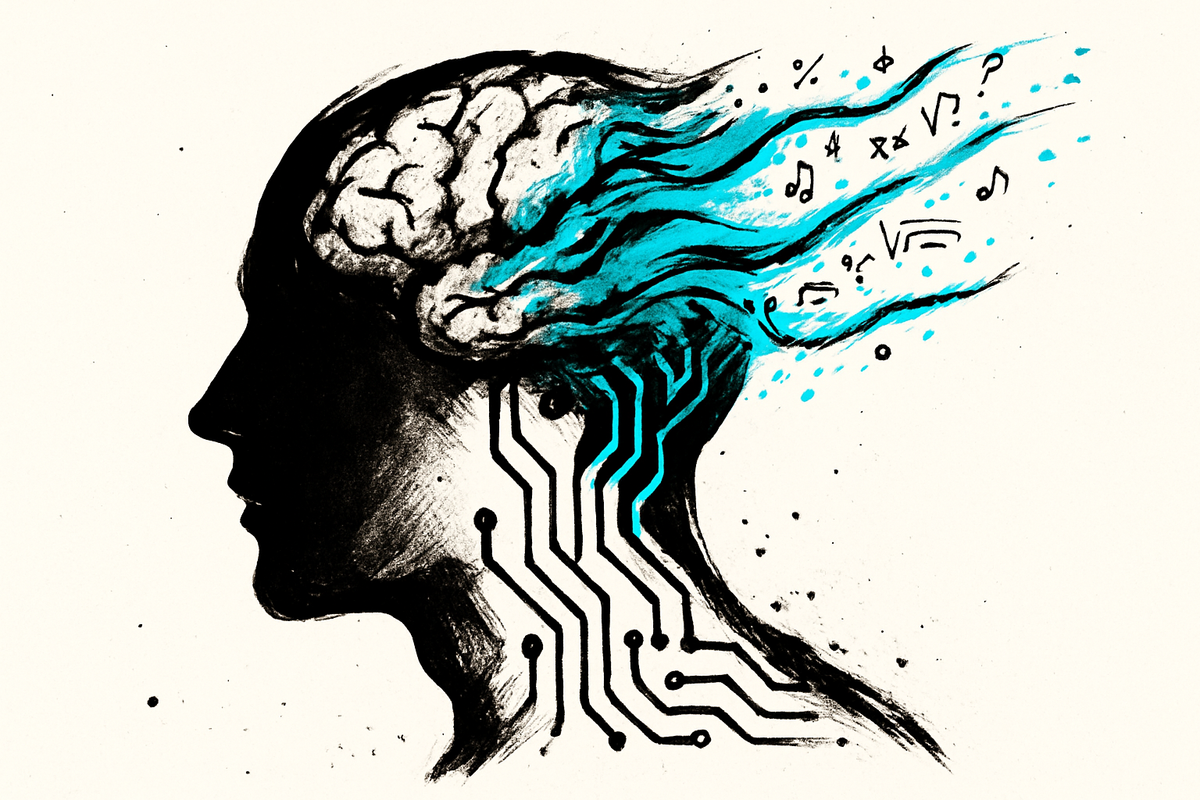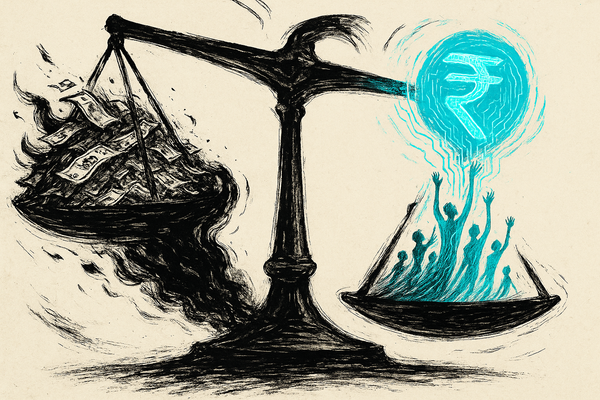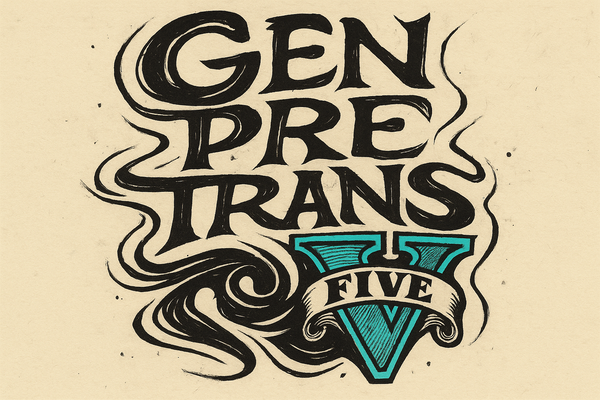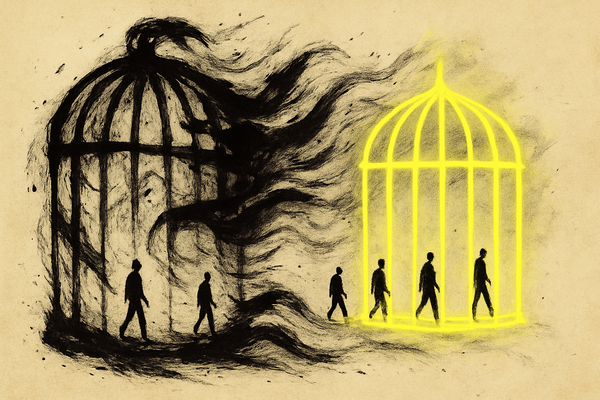ImaginEconomy Daily #4
The Cognitive Crisis: Who Questions AI's Answers?

ImaginEconomy 🧠✨💰: Brands, Strategy, Story and Design in the Age of AI
The Cognitive Offloading Crisis: Is AI Making Us Too Comfortable to Think?
New research from the journal Societies reveals that frequent AI tool usage significantly weakens critical thinking abilities, with younger users showing the most dramatic cognitive decline. The study of 666 participants found that heavy AI users scored lower on critical thinking assessments, not because AI makes us dumb, but because we're using it to bypass the messy, uncomfortable process of actual thinking.
ImaginEconomy Impact: This isn't just academic hand-wringing. It's a five-alarm fire for creative agencies. If your teams are outsourcing their thinking to AI, they're not just losing skills; they're losing the ability to question, critique, and create tension that makes work better. The antidote? Build collaboration back into your process. AI should amplify human debate, not replace it. The agencies that win will be those that use AI to speed up iteration while maintaining the friction of human disagreement. Remember: the best ideas come from conflict, not consensus.
Source: Societies journal on AI cognitive offloading study
AI Marketing Agencies Proliferate as Brands Scramble for Expertise
The AI marketing agency boom is real: firms like NoGood, NinjaPromo, and Neurons Inc are commanding premium fees by combining traditional creative services with AI implementation. These agencies aren't just using ChatGPT to write copy – they're building proprietary AI tools, fraud detection systems, and predictive analytics platforms that promise to revolutionize how brands connect with consumers.
ImaginEconomy Impact: The rise of specialized AI agencies signals a market admission: most brands and traditional agencies are woefully unprepared for the AI revolution. But here's the catch – many of these "AI agencies" are just repackaging standard services with AI buzzwords. The real value isn't in having AI tools; it's in knowing when NOT to use them. Smart brands should look for agencies that can articulate why human creativity still matters, not just how fast their AI can generate variations.
Source: Top AI Marketing Agencies 2025 analysis
The Deepfake Detection Gold Rush: A $5.3 Billion Race Against Reality
The deepfake AI market is exploding, projected to reach $5.3 billion by 2030, but so is the detection market – growing at 42% annually to combat increasingly sophisticated synthetic media. Major brands like Meta are battling explicit deepfake ads on their platforms, while companies scramble to implement detection tools that claim 90%+ accuracy rates but struggle against open-source AI models designed to evade them.
ImaginEconomy Impact: We're witnessing an arms race where every advance in deepfake creation spawns new detection technology – and vice versa. For brands, this creates a double bind: you need deepfake tech for innovative campaigns (personalized ads, virtual influencers) but also detection tools to protect against brand hijacking. The solution? Build "authenticated creativity" into your process from day one. Use blockchain-verified content creation, maintain chain-of-custody documentation, and partner with detection platforms preemptively. The brands that win will be those that embrace both sides of the deepfake economy.
Source: P&S Intelligence on deepfake AI market growth
Senate Strikes Down Federal AI Preemption: Welcome to the Regulatory Maze
In a 99-1 vote, the U.S. Senate rejected provisions that would have prevented states from regulating AI, ensuring that brands will face a patchwork of 50 different AI compliance frameworks. Tech giants like Google and OpenAI lobbied hard for federal preemption to avoid this exact scenario, but lawmakers sided with states' rights to protect their citizens.
ImaginEconomy Impact: Congratulations, you're now running 50 different marketing campaigns. Each state will have its own AI rules, disclosure requirements, and enforcement mechanisms. For national brands, this creates a compliance nightmare. For nimble agencies, it's an opportunity. The winners will be those who can build flexible AI strategies that adapt to local regulations while maintaining brand coherence. Think of it as the ultimate creative constraint: How do you tell a unified story when every state has different rules about how you can tell it?
Source: Reuters on Senate AI regulation vote
AI Virtual Assistants Get Emotional: The Rise of Synthetic Empathy
A new wave of AI assistants like Replika and Youper are moving beyond task automation to provide emotional support and mental health assistance. With the global AI assistant market expanding rapidly, companies are racing to add "emotional intelligence" to their virtual helpers, creating AI that can detect mood, offer empathy, and even provide therapy-like interactions – raising profound questions about the boundaries between human and artificial emotional labor.
ImaginEconomy Impact: Brands are about to face a reckoning: when your AI can simulate empathy, what happens to authentic human connection? The opportunity lies not in replacing human emotional labor but in augmenting it. Think AI that helps customer service reps identify emotional cues they might miss, not AI that pretends to care. The brands that win will use emotional AI as a bridge to better human interactions, not a substitute for them. Warning: get this wrong, and you'll face a backlash that makes the uncanny valley look like a speed bump.
Source: Unite.AI on AI assistants with emotional capabilities
AI Content Detection Arms Race: When Verification Becomes Vital
Following the Cannes Lions scandal, the advertising industry is scrambling to implement AI detection tools and verification systems. Major award shows, publishers, and brands are investing in technology to identify AI-generated content, creating a new cat-and-mouse game between AI creation and AI detection.
ImaginEconomy Impact: The trust economy just got a lot more expensive. Agencies will need to invest not just in AI tools but in verification systems to prove their work is authentic. This creates a paradox: the more sophisticated AI becomes, the more valuable human-verified creativity becomes. Smart agencies should start building "chain of custody" documentation for their creative process, showing exactly how humans and AI collaborated. Think of it as organic certification for creativity – and charge accordingly.
Source: Campaign Asia on Cannes AI integrity measures
Algorithmic Pricing Transparency: New York's Next AI Battleground
Beyond synthetic performers, New York has also enacted algorithmic pricing disclosure requirements, mandating that any business using AI to set prices based on personal data must clearly state: "This price was set by an algorithm using your personal data." The law takes effect July 8, 2025, with penalties reaching $1,000 per violation.
ImaginEconomy Impact: Dynamic pricing just got a lot less dynamic. If your brand uses AI for personalized pricing, you'll need to tell customers exactly that – potentially killing the magic of "special offers" that feel personal. But here's the opportunity: radical transparency could become your differentiator. Instead of hiding algorithmic pricing, celebrate it: "Our AI found you the best possible price based on your preferences." Turn the disclosure into a feature that builds trust rather than destroying it.
Source: Clark Hill on NY algorithmic pricing law
Bottom Line: The Friction Revolution
Today's stories paint a clear picture: the frictionless AI future everyone promised is hitting the walls of human reality. From cognitive decline to regulatory mazes, from trust crises to talent wars, we're discovering that removing all friction from the creative process might actually be removing what makes it valuable.
The Cannes scandal wasn't just about fake footage – it was about an industry so desperate for efficiency that it forgot why inefficiency matters. The best creative work comes from tension, debate, and the messy human process of making something that didn't exist before.
As we race toward an AI-powered future, the brands that win won't be those with the fastest AI or the most automation. They'll be those brave enough to maintain human friction in their process – to keep the arguments, the revisions, the uncomfortable questions that make work better.
The future belongs to brands that see AI not as a way to eliminate human complexity, but as a tool to navigate it more thoughtfully. In an age of infinite machine generation, the scarcest resource isn't AI capability – it's human judgment about when not to use it.
ImaginEconomy Daily Newsletter is curated for brand, business and marketing strategists, creatives, and leaders navigating the intersection of technology and human experience.




